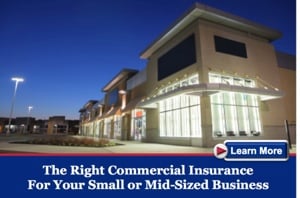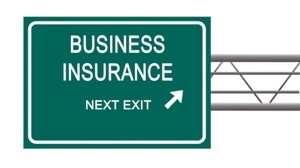 When you start a business, you’re full of hope and dreams. The last thing you want to think about is what would happen to your business if you, a co-owner, or a key person within the business were to become disabled or – God forbid – die.
When you start a business, you’re full of hope and dreams. The last thing you want to think about is what would happen to your business if you, a co-owner, or a key person within the business were to become disabled or – God forbid – die.
But, as a business owner it is your responsibility to think about these things and plan how you will protect your business, your employees, and your family in the event of one of these tragedies. In order to do that, you need to ask yourself these two questions and then get the proper business insurance to meet your needs:
Here are 4 Types of Business Insurance to Consider:
Disability Buy-Out Insurance
Business Overhead Insurance
If an owner were to become disabled, this insurance would reimburse the business for overhead expenses – such as salaries, taxes, employee benefits, rent, mortgage, utilities, etc. – for one or two years. This often means the difference between a business surviving or closing until the owner can get back on his or her feet.
Individual Life Insurance
What if you or one of the owners were to die? What would happen to your business? You might assume that your family or remaining owners could sell or liquidate the business to ensure their financial security. Unfortunately, this doesn’t usually work. First, who wants to think about selling a business while grieving for the loss of a loved one? Second, when the family is forced to sell the business quickly, they may have to sell at a discount or during market conditions that make the business less attractive. In other cases, the business may be worth very little without the proprietor or partner. Individual life insurance can protect your family by providing funds to cover debts, ongoing living expenses and future plans, in the event that something happens to you. Life insurance can also be structured to fund a buy-sell agreement.
Key Person Insurance
This is another essential component of a smart business continuation plan. Key person insurance is life or disability insurance purchased by the business on an employee/owner that is essential to the running of the business. It is payable to the business. When a key person dies or becomes disabled, insurance can help make up for lost sales or earnings or cover the cost of finding or training a replacement.
Need Help Finding the Right Business Insurance?
 Don’t take chances. It’s your responsibility for protecting your family, employees, and your business. Make sure that you plan for the unexpected with the right business insurance and individual life insurance.
Don’t take chances. It’s your responsibility for protecting your family, employees, and your business. Make sure that you plan for the unexpected with the right business insurance and individual life insurance.
Contact us at (800) 947-1270 or (610) 775-3848; we can help you determine the right insurance to protect your assets. As independent insurance agents, we'll shop among competing insurance providers to find you the right insurance at the best price. Call or click today.



 Every home-based business should be protected by commercial insurance. But the growth of the internet and other technological advancements –such as social collaboration tools and communication apps - have changed the way many of us do business today and significantly influenced the number of small businesses nationwide. In addition, the low start-up costs; the reduction in the cost of commuting, meals, and other expenses; the flexibility; and the savings realized from not maintaining a “storefront” are creating more home-based businesses. Sometimes home-based business owners forget that their homeowner's policy is unlikely to cover them for liabilities that can occur in their business.
Every home-based business should be protected by commercial insurance. But the growth of the internet and other technological advancements –such as social collaboration tools and communication apps - have changed the way many of us do business today and significantly influenced the number of small businesses nationwide. In addition, the low start-up costs; the reduction in the cost of commuting, meals, and other expenses; the flexibility; and the savings realized from not maintaining a “storefront” are creating more home-based businesses. Sometimes home-based business owners forget that their homeowner's policy is unlikely to cover them for liabilities that can occur in their business.
 If you own a fleet of vehicles that are used exclusively for your business or you own a freight truck or delivery truck, you probably understand that you need commercial vehicle insurance on those vehicles. But what if you have one vehicle that you use to deliver pizzas? What if you use your personal vehicle to drive to job sites or to meetings?
If you own a fleet of vehicles that are used exclusively for your business or you own a freight truck or delivery truck, you probably understand that you need commercial vehicle insurance on those vehicles. But what if you have one vehicle that you use to deliver pizzas? What if you use your personal vehicle to drive to job sites or to meetings?
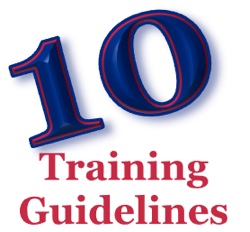 On average, thirteen Americans are killed on the job every single day of the year and nearly 4 million workers are seriously injured on the job each year. Under the Occupational Safety and Health (OSH) Act, employers are responsible for providing a safe working environment. Furthermore, employers “MUST provide their workers with a workplace that doesn’t have serious hazards and must follow all OSHA safety and health standards.”
On average, thirteen Americans are killed on the job every single day of the year and nearly 4 million workers are seriously injured on the job each year. Under the Occupational Safety and Health (OSH) Act, employers are responsible for providing a safe working environment. Furthermore, employers “MUST provide their workers with a workplace that doesn’t have serious hazards and must follow all OSHA safety and health standards.”  Get the Right Workers Compensation Insurance Protection
Get the Right Workers Compensation Insurance Protection Thirty-nine percent of households have dogs, so it’s no surprise that more companies – including Google, Etsy, and Build-A-Bear Workshop – are allowing employees to bring their dogs to work. After all, Congress has been dog friendly since the 19th century. And, according to a survey conducted by the American Pet Products Manufacturers, 17 percent of Americans work at pet-friendly companies. What are the benefits? What are the risks? Does your business insurance adequately cover the risks? You should know the answers to these questions before implementing a pet-friently workplace policy.
Thirty-nine percent of households have dogs, so it’s no surprise that more companies – including Google, Etsy, and Build-A-Bear Workshop – are allowing employees to bring their dogs to work. After all, Congress has been dog friendly since the 19th century. And, according to a survey conducted by the American Pet Products Manufacturers, 17 percent of Americans work at pet-friendly companies. What are the benefits? What are the risks? Does your business insurance adequately cover the risks? You should know the answers to these questions before implementing a pet-friently workplace policy. Contact Us for the Right Business Insurance Protection to Support a Pet-Friendly Workplace
Contact Us for the Right Business Insurance Protection to Support a Pet-Friendly Workplace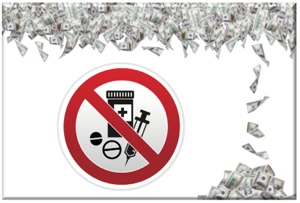 The National Council on Alcoholism and Drug Dependence (NCADD) estimates that drug abuse in the workplace costs business owners $81 billion annually.
The National Council on Alcoholism and Drug Dependence (NCADD) estimates that drug abuse in the workplace costs business owners $81 billion annually.  A drug-free workplace initiative can create a healthier workforce and improve your company’s bottom line, including lowering your workers compensation insurance claims and costs.
A drug-free workplace initiative can create a healthier workforce and improve your company’s bottom line, including lowering your workers compensation insurance claims and costs.  With the current sluggish economy, more and more companies are turning to business consultants to help cut spending, maximize productivity, and develop more cost-efficient practices. Business consulting services come in a variety of shapes – from sales and marketing consulting to technology consulting – and sizes - from working out of a home office to working in a large consulting agency.
With the current sluggish economy, more and more companies are turning to business consultants to help cut spending, maximize productivity, and develop more cost-efficient practices. Business consulting services come in a variety of shapes – from sales and marketing consulting to technology consulting – and sizes - from working out of a home office to working in a large consulting agency. 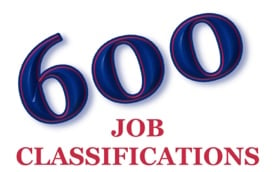 Worker's compensation insurance, job classifications, job risks and insurance premiums are all related. Job classifications, which are based on specific ratings and descriptions for all types of jobs, are determined by the National Council on Compensation Insurance (NCCI), the insurance industry’s ratings bureau. There are more than 600 different job classifications, and more are being added all the time, so it isn’t surprising that 30-35 percent of businesses have classification errors. But have you considered the potential impact on your business insurance costs that an erroneous job classification can bring?
Worker's compensation insurance, job classifications, job risks and insurance premiums are all related. Job classifications, which are based on specific ratings and descriptions for all types of jobs, are determined by the National Council on Compensation Insurance (NCCI), the insurance industry’s ratings bureau. There are more than 600 different job classifications, and more are being added all the time, so it isn’t surprising that 30-35 percent of businesses have classification errors. But have you considered the potential impact on your business insurance costs that an erroneous job classification can bring? Don’t wait for your
Don’t wait for your 
 Following these tips will help ensure the safety of your employees and reduce workers’ comp claims; however, injuries may still happen.
Following these tips will help ensure the safety of your employees and reduce workers’ comp claims; however, injuries may still happen. 